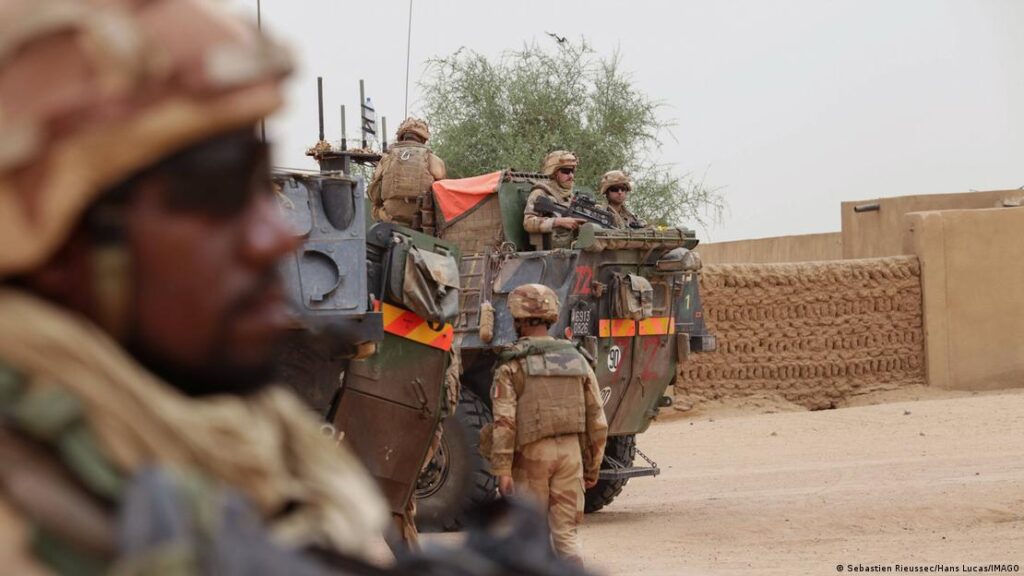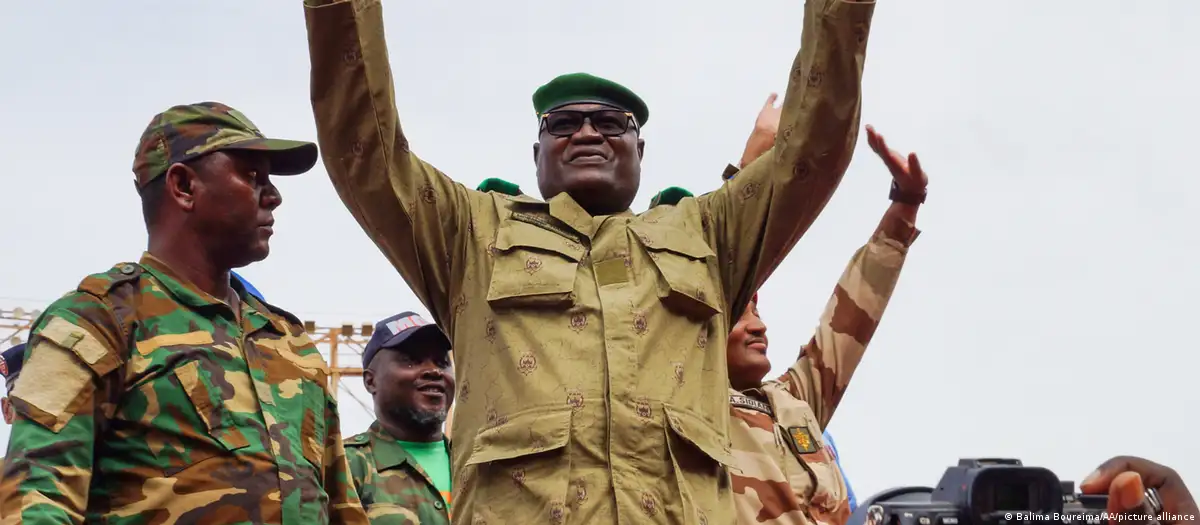Gabon and Niger are the most recent cases of attempts to seize power. Disillusionment with democracy has to do with poverty, lack of articulation in society, weak media and excessive influence from Paris, say analysts.
(DW) Political instability in France’s former colonies in West Africa has caused a wave of military coups and attempts to overthrow power. Since 2020, anti-French sentiment seems to have triggered or at least contributed to triggering coups in Burkina Faso, Guinea, Mali and, most recently, Niger.
In Gabon, a group of soldiers announced the seizure of power and the dissolution of all the country’s democratic institutions on Wednesday (30/08), as well as the annulment of last weekend’s presidential elections, which had brought Ali Bongo Ondimba back to power for a third term.
Following the episode in Niger, Senegalese human rights lawyer Ibrahima Kane, from the Open Society Foundations, told DW that the sentiments seeking to break with the supposed French influence are real.
“The French perception of our citizens has never changed. They always consider us second-class citizens. They always treat Africans, especially Francophones, in a certain way. And West Africa wants this situation to change,” he said.
But African affairs analyst Emmanuel Bensah, who specializes in the regional bloc Economic Community of West African States (ECOWAS), thinks that anti-colonial sentiments don’t fully explain the recent coups in the region.
“There is a colonial problem with the French and the British in West Africa. But that doesn’t mean that all the member countries are taking up arms. You see that the Anglophone countries have not taken up arms, and yet they are in the same sub-region,” he points out.
Loss of hope in democracy
Unlike Anglophone Africa, which is currently experiencing a comparatively stable political climate, Western-style democracy has not gained a solid foothold in Francophone West Africa.
“There is a feeling in French-speaking African countries that the French have always been on the side of whoever is in power, regardless of whether they are popular or not. There is always a very strong link between France and governments that, in many situations, are not very friendly towards their own people,” says Ibrahima Kane.
He adds that this same anger has been directed at democratically elected governments supported by France, leading to military interventions.
In Niger, thousands demonstrated in support of the military junta that overthrew President Mohamed Bazoum, echoing discontent with democratically elected governments.
Nigerian governance analyst Ovigwe Eguegu says that elected leaders in the former French colonies have done little to improve the lives of citizens. “That’s why you have these populist coups. They are populist coups, we have to be frank,” he says.

Endemic poverty
Some experts also attribute the recent coups to the endemic poverty in many former French colonies. It was only in 2020 that the long-awaited bill to ratify the end of the CFA franc, the West African currency controlled by the French treasury, was passed. It took 75 years for this to happen.
France was accused of exploiting the natural resources of these countries while they struggled to solve the daily economic problems of their citizens. Posthumus reckons that with such growing frustrations, citizens often lose trust and patience with the democratic process.
“Democracy has not solved any of the basic problems that people had, be it violence, poverty or lack of economic opportunities. And these juntas are very adept at making people believe that they will solve these problems. They won’t,” he says.
For Eguegu, if the population doesn’t see the benefits of a democratically elected government, there will be very little support for it in times of crisis.
“Why would they engage in voting if nothing changes? For them, coups are seen as a way of shocking the system to see if it can lead to a better outcome,” he says, although Eguegu admits that military leadership has rarely improved the situation.
Bram Posthumus, an independent journalist who covers West Africa, puts it more bluntly. “One of the things that these successive coups demonstrate is the fairly clear notion that the experiment with Western-style democracy in the Sahel, at least, has been a total failure,” he says.
But in some cases, infighting among the ruling political class triggered these coups. Days before his overthrow, Niger’s ousted president Mohamed Bazoum was planning to sack the current coup leader.
Disagreements between soldiers in Burkina Faso also triggered a second coup after the military overthrew President Roch Kabore in a coup in 2022.
Ineffective civil society and media
Emmanuel Bensah’s concern, however, is that Francophone Africa has not yet fully developed resilient governance systems and institutions to solve development challenges.
“If you look at countries like Ghana, Nigeria, Gambia, Liberia, Sierra Leone, no matter how poor they may be, there is a civil society actively working together with a vibrant media that seeks to at least hold those responsible to account,” he points out.
Bensah said that Anglophone Africa is making great strides in amplifying different voices, which is lacking in Francophone Africa. “The challenge has always been that, for a long time, a lot was dictated by France, which didn’t give room for the growth of local civil society,” he stresses.
Insecurity in the Sahel
The continuing deterioration of security in most of France’s former colonies in Africa has also fueled recent coups in Burkina Faso, Guinea, Niger and Mali. The Sahel region has been engulfed in insurgencies since 2012, starting in Mali.
The wave spread to Burkina Faso and Niger in 2015 and now the Gulf of Guinea states are suffering sporadic attacks. According to the United Nations, the growing insecurity in the Sahel represents a “global threat” as the humanitarian situation worsens, with thousands of people fleeing their homes.
Western countries, including France, have tried unsuccessfully to deal with insecurity in the region. In Mali and Burkina Faso, their military missions have had to leave those countries.
ECOWAS is under pressure to stem the wave of coups, but its response usually involves imposing sanctions.
ECOWAS reform
The bloc’s recent decision to activate a standby force for a possible military intervention in Niger has divided regional governments and is seen as problematic by analysts such as Eguegu. “ECOWAS would really need to redesign its handbook when it comes to dealing with unconstitutional changes of government.”
Bensah adds that the bloc should above all help the former French colonies strengthen their democratic institutions. “They [French-speaking West Africa] need to identify which civil society organizations they need to start talking to and then invite them to start building local capacities,” he says.
